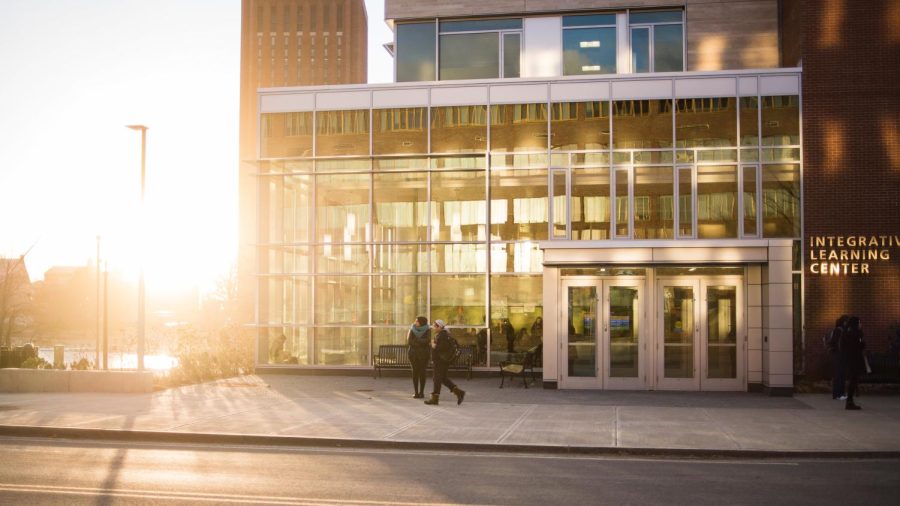In the leadup to the 2020 election, political polarization was at an all-time high. Nearly half of liberals said they would not be friends with a supporter of then-President Donald Trump, and most Trump supporters said they did not have friends who voted for another candidate. A graph from a Pew Research Center study indicates that both parties have moved more ideologically apart than decades past, but none of this extreme polarization is necessary.
The COVID-19 pandemic has exacerbated this polarization. According to a Pew Research Center study, those supporting the governing party’s coalition are far more likely to approve of the government’s handling of the pandemic than in other developed countries. Meanwhile, an article from USA Today cited a study, saying that “Republicans were less worried about COVID-19 and less likely to practice social distancing or wear masks,” because conservative politicians and media are often louder than the guidance of health officials. People have become divided on many aspects of the virus, from mask-wearing to the vaccine. The threat of the virus is not one that is tangible, not one that someone can point their finger at, not an enemy, which is why it has become so hard to unite the country to stop it. This device is not only dangerous for the politics of the country, but also for the people that live in it.
Similarly, Trump’s controversial rhetoric and actions have kept his supporters in line and his opponents further away. At the Conservative Political Action Conference, Trump used the same explosive, accusatory and fear mongering rhetoric that he used throughout his 2016 campaign and presidency. He warned of the dangers of socialism and Joe Biden’s administration, pushed his election fraud lies and named enemies in the Republican Party. This sort of message only pushes his supporters farther from the left and towards his ideology that often debases itself from reality. This is exemplified when he warns of Muslims, illegal immigrants and ANTIFA. Moreover, his past lies about election fraud, which ultimately incited the Capitol insurrection, led to further division and to thousands of Republicans dropping their party affiliation. This rhetoric that demonizes opposition, alienates minority groups and incites violence is incredibly dangerous for the social fabric of the country.
On the other hand, many people on the left have become increasingly intolerant of people that do not share their beliefs. Around the time of the election, Instagram was chock-full of infographics stating things like “if you voted for Trump, we are not friends.” From a liberal viewpoint, many of the policy positions and conservative rhetoric is reprehensible, especially given how far the “Make America Great Again” movement has gone and the Capitol insurrection. However, if seen by a Trump supporter, these statements would only empower their beliefs, causing them to become more resolute in their mindset. From the perspective of someone on the left, it would be far more constructive to say, “If you are a Trump supporter, reach out and maybe I can change your mind.”
While not everyone may be versed in how to convert and educate a Trump supporter on why their beliefs are misplaced, offering an open dialogue can be much more productive. For instance, Daryl Davis, a blues musician, was able to get 200 Ku Klux Klan members to give up their robes by having dinner with them and educating them on why their positions are wrong. If Davis can do that to the most infamous hate group in America, I’m sure that similar dialogue can happen between people of opposing political ideas. After years of ever-increasing divisiveness and hyper-partisan politics, hopefully we can move in a better direction in the future.
In the age of divisive politics, it can be hard to imagine a time in which the country was united. However, not so long ago, it was a reality. In the aftermath of Sept. 11, America was united in a time not seen since World War II. People put their differences aside to come together as Americans. People donated, volunteered and American flags were sold out at stores around the nation. Americans, regardless of class or political affiliation, stood as one entity. According to James Phillips of the Scott County Times, “The morning following 9/11 this whole country woke up feeling as together as I can ever remember, and that is what we so desperately need now.”
We all want what is best for the country. Whether it is improving the economy, ending the pandemic or protecting the constitution. We must come together to determine what the best course of action can be. We must be empathetic and bridge the political divides in this country. Consider reaching out to someone who disagrees with you to obtain a greater understanding of who they are and why they think the way they do. Talk to someone long enough and you will realize you have more in common than you think.
Josh Lewis can be reached at [email protected].



















